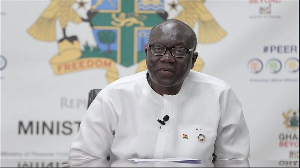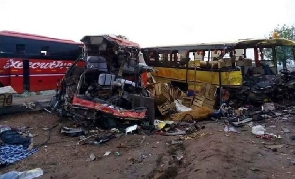Ghana is hosting a three-day conference of African Confederation of Principals(ACP), which opened in Accra on Monday on the theme: “Educating the African Child: Walking the Policy Talk.”
The Conference, which is the 8th, was attended by Principals of Secondary Schools in Ghana, Kenya, Uganda, Nigeria, and South Africa, who would engage in discussing issues facing secondary school education in Africa and make recommendations for the continent’s educational system to maintain a competitive edge globally.
It would provide participants with a platform for professional growth, bench marking and sharing of experiences for the development of globally competitive African School for the African Child.
Professor Jerome Siau Djangmah, a retired Professor of the Department of Zoology of the University of Ghana, who delivered the keynote address, said as the global economic competition grows, education has also become an important source of competitive advantage that is closely linked to growth and also development for the African Child.
He said for Africa to realise its full potential and be competitive in the global race, there is the need to focus on education as one of the major keys to economic development and improvement of human beings.
Prof Djangmah however queried the type of African Child that is being envisaged amidst the array of challenges including the frequent shortage of qualified school teachers and inadequate funds or budgetary allocation for teaching and learning materials that besieges the educational systems in the continent
The vision of universal access could be elusive if concrete actions are not taken to address the huge gap in access to quality education due to challenges including social status and funding as pertains currently in African countries, he said.
According to him the issue of affordability, citing the gap between the privileged and the less privilege in the society to quality education, has contributed to the defect of policies and programmes aimed at achieving universal access to education.
Prof Djangmah said it is easier for much privileged children in the society to gain access to the best schools than for their counterparts who are less privileged in terms of finance and other resources to do the same, therefore decisions made by Principals to give equal opportunities to the underprivileged, are critical for the total development of an entire generation.
He said the development and success of the African Child therefore rested on the shoulders of principals of secondary schools from whose directions and actions are important to change the phase of education and make access practical for every child.
This, he said, would be possible if they champion advocacy for equal access and opportunities to every child no matter their social or financial status, as giving underprivileged children quality education would help them to bring change into their own communities.
He also called for strong national advocacy for the use of the local rather than foreign languages as the basic medium for instructions in school in African countries for at least the first three years of basic education, saying this could provide the child with better understanding of lessons and ensures better outcomes.
Mr Samuel Ofori-Adjei, President of the Conference of Heads of Assisted Secondary Schools and the newly elected Head of the ACP, said with all the brilliant policies in place, Africa’s educational system must not fail because of lack of practicality and appraisal of performance.
He called on stakeholders to join in efforts being made to elevate Africa’s educational standards to attract global competitiveness.
Regional News of Tuesday, 16 December 2014
Source: GNA












